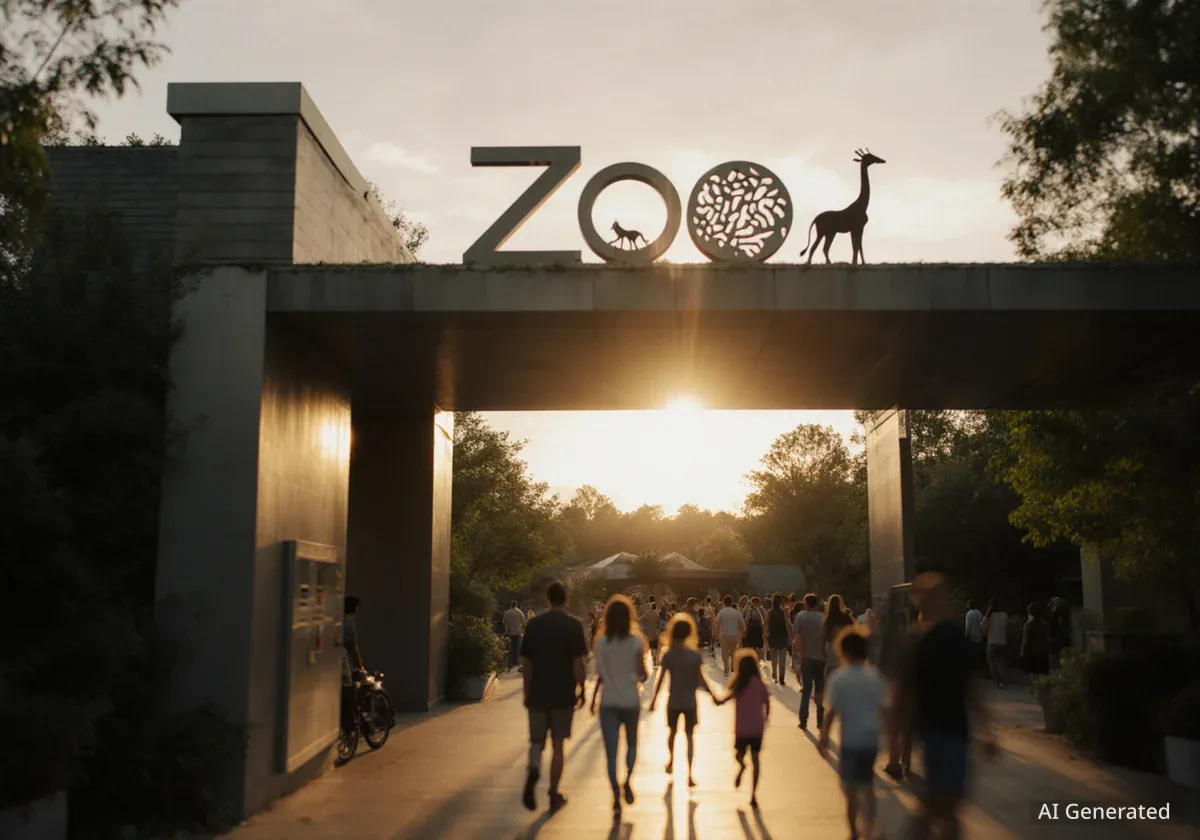The Canton of Bern has issued an order to allow the shooting of a lynx in the Kandertal region. This decision comes after the animal repeatedly attacked livestock. The decree from the Directorate for Economic Affairs, Energy and Environment takes effect on Wednesday, September 17, 2025.
Authorities state that the lynx has killed several sheep and goats since mid-June. This pattern of behavior led to the decision to authorize its removal from the area.
Key Takeaways
- Bern Canton approved a lynx shoot in Kandertal.
- The lynx attacked multiple livestock animals since mid-June.
- The decision follows an assessment by the hunting inspectorate.
- The Federal Office for the Environment approved the measure.
- The shooting period is until November 16, 2025.
Reasoning for the Decision
The hunting inspectorate assessed the lynx's behavior. They concluded that the animal had increasingly specialized in preying on farm animals. This specialization meets the criteria for an exceptional case under the established lynx management plan.
The Canton's decision received approval from the Federal Office for the Environment. This federal endorsement confirms that the measure aligns with national wildlife regulations and conservation efforts.
Fact: Lynx in Switzerland
Lynx are a protected species in Switzerland. Their population has been recovering since reintroduction efforts began in the 1970s. Management plans aim to balance conservation with agricultural interests.
Timeline and Legal Aspects
The authorization for the lynx shoot is valid until November 16, 2025. During this period, designated personnel are permitted to carry out the measure.
Individuals can file objections against the decision. However, any such complaints will not suspend the immediate effect of the decree. This means the authorization remains active even if an appeal is pending.
"The lynx has increasingly specialized in preying on farm animals, meeting the criteria for an exceptional case under the lynx management plan," stated a representative from the Directorate for Economic Affairs, Energy and Environment.
Impact on Local Farmers
Farmers in the Kandertal region have faced challenges due to the lynx's repeated attacks. The loss of livestock, particularly sheep and goats, can cause significant financial strain for agricultural businesses.
The decision to authorize the shoot aims to protect these farmers' livelihoods. It also seeks to prevent further escalation of conflicts between wildlife and human activities.
Background: Lynx Management
Switzerland has a national concept for managing lynx populations. This concept outlines conditions under which a lynx may be removed from an area. These conditions typically involve repeated attacks on protected livestock despite preventative measures.
The goal is to ensure the long-term survival of the lynx population while minimizing conflicts with human interests. This balance is crucial for maintaining biodiversity and supporting rural communities.
Conservation and Coexistence
Lynx are vital predators in Swiss ecosystems. They help control populations of wild ungulates like deer and chamois. Their presence indicates a healthy forest environment.
However, when lynx target domestic animals, it creates a direct conflict with human interests. Authorities must weigh conservation goals against the need to protect livestock and support local agriculture.
Preventative Measures and Future Outlook
Farmers often implement various measures to protect their livestock from predators. These can include electric fences, guard dogs, and night enclosures. The effectiveness of these measures varies depending on the specific circumstances and the predator's behavior.
The incident in Kandertal highlights the ongoing challenge of managing large carnivores in populated areas. It underscores the importance of clear guidelines and rapid response mechanisms to address such conflicts.
The Canton of Bern continues to monitor wildlife populations and their interactions with human activities. Decisions like this are part of a broader strategy to maintain ecological balance and ensure public safety and economic stability for farmers.
- Economic Impact: Livestock losses affect farmers' income and operations.
- Wildlife Management: Balancing predator conservation with agricultural protection is a complex task.
- Legal Framework: Decisions are made within strict national and cantonal guidelines.
The situation in Kandertal serves as an example of how authorities manage specific cases within a broader conservation framework. It reflects the ongoing efforts to find sustainable solutions for coexistence between humans and wildlife in Switzerland.




